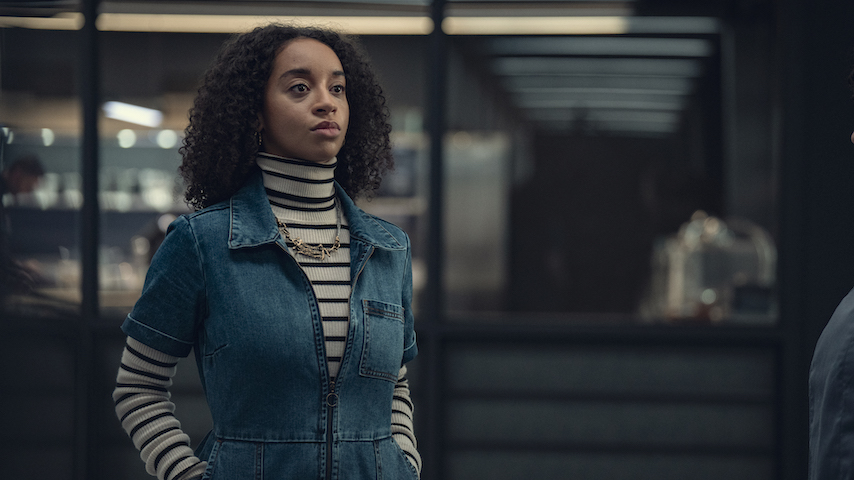How Black Mirror learned to stop worrying about the future and cope with the present
In the show's seventh season, Charlie Brooker asks himself—and us—how to deal with what's already here.
Photo: Nick Wall/Netflix
When Black Mirror debuted back in 2011 on Channel 4, the premise of its first episode, “The National Anthem,” was simple: Social media creates a firestorm around the kidnapping of a British princess, and her captor blackmails the prime minister into having sex with a pig to secure her release. That was followed up with an exploration of toxic TV talent shows (“Fifteen Million Merits”) and an installment set in a world where people lose the ability to forget, thus destroying their relationships (“The Entire History Of You”). At the time, these pieces set in a near future—ones that speculated how the seemingly innocuous technology around us could turn dark and twisted— broke the internet. But 14 years later, those once shocking episodes feel relatively tame.
After the show’s first season, British newspapers printed accusations that then-prime minister David Cameron had allegedly been intimate with a dead pig (and no one was even holding a royal family member ransom at the time); talent shows were exposed for their exploitative practices and lack of safeguarding for the vulnerable, a sentiment that resurfaced last year following the passing of Liam Payne; and we became even more attached to our devices, documenting nearly every moment of our lives and unable to truly forget.
Watching season two’s “The Waldo Moment,” in which a crude TV star becomes the face of the new world order, now feels positively quaint after scrolling through today’s headlines. Even after the series moved to Netflix—with “Nosedive” presenting a society in which access to the finer things in life depends on public ratings and “Men Against Fire” depicting soldiers who are implanted with tech that makes their enemies appear as monsters—its scenarios today don’t seem so far-fetched. Anyone with access to a computer faces living in a world where influencer endorsements shape presidential campaigns, aid workers are being murdered with impunity, and genocide is livestreamed from Gaza.
During a brief charity Zoom conversation I had with series creator Charlie Brooker, I joked about how prophetic “The National Anthem” was. He sighed and said he used to try and think of the most messed-up thing possible for Black Mirror, but reality kept beating it. He expressed a similar point to The Guardian earlier this month, saying of the show’s recent seventh season: “I’d say there’s a little less dystopia. If you want that, there’s a 24-hour panel showing it called your window. You don’t necessarily want to see something saying: Things are going to get worse.”








































